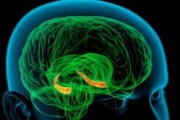Viewings: 6112

It seems that scientists have found in the brain special zone, responsible for helping your neighbor. Until recently, altruism was considered "anomaly" behaviour, acquired in the process of social development. But from the middle of XX century began to talk of the good deeds, apparently sent by the brain. A recent experiment of American scientists has proved it.
The existence of altruism, that is selfless and seemingly nemotivirovannoy help a neighbor, has long been baffled scientists. If the individual, and most do not always have enough food, food, or other resources, why share with a friend? And if they have enough, why not be stored for future use? Evolutionists suggested that help one's neighbor was useful for group survival, and therefore became socially approved.
But nobody thought that altruism can be incorporated into the brain at the level of reflexes. Main principle of activity of the nervous system that control our actions, was considered the so-called dominant, the concept of which was introduced by the physiologist A. A. Ukhtomsky in 1923. The dominant theory in Ukhta said, that Dominanta - sustainable hearth increased nervous excitability in the brain, due to the lack of something (food, water, sex partner, and so on). Dominant defined search activity of the body and affect the motivation for his actions.
If an animal or a person wants to drink, his focus will be on potential sources of liquid and not, for example, food, or dealing with their own kind. Altruism, it would seem, did not fit into the pragmatic theory of neural activity: where in the body is "center help your neighbor" and how it may appear to lack? But it turned out that such a center exists.
At the same time psychologists and physiologists began to say that helping others is almost a requirement of the body. Psychologists have noticed that people like to feel generous and kind, and therefore the support for neighbors actually satisfy their own need "to be good". Neuroscientists in turn found physiological substantiation of this hypothesis: magnetic resonance imaging showed that during the altruistic behavior in the brain is activated the reinforcement system, responsible for the fun of it .
Recently, scientists from Duke University (USA) found in the brain in rhesus monkeys and special cells that are activated only during the activity aimed at the benefit of another individual. Experimenters offered monkey juice, with the possibility to choose: to take the juice itself, to give another macaque or to leave in place. Greedy monkeys often took the juice itself.
Then the scientists have left them with only the last two options: to leave the juice on the spot or to give to his friend. In this case, macaques preferred nevertheless "gift" treat fellow man than to forget completely about it. Tomogram showed that in the brain of resursov at that time worked perfectly initerary than in the case when the macaques were taken juice yourself.
If macaque behaved selfishly, that is, he took the meal itself, it has intensified cells orbitofrontal cortex, which is responsible for personal benefit. If a monkey was doing good to one's neighbour, she was involved in some of the neurons in front of the cingulate gyrus. During the selfish behavior of these cells are silent. Cingulate gyrus, the researchers say, is involved in social and interpersonal interaction: for example, when dear to us man gets in a difficult situation, for him "experiences" it.
On the results of its research, the researchers said in the journal Nature Neuroscience. The activity of neurons cingulate gyrus they compare with "mirror" reward system: these neurons are activated when the brain "observes" how benefit of our neighbor but not we ourselves."Altruistic" neurons does not prohibit to enjoy his own benefit, however, indicate an alternative source of such pleasure as good deeds. The discovery of scientists from Duke University is another key to solving the mystery of altruism. Biology evolutionists still don't agree, how animals and humans formed the possibility and even the necessity) to help another.
Currently in science there are two main theories on this. One of them asserts that the promotion of mutual assistance was formed socially (as it proved beneficial for the survival of the species) and thus entrenched in the nervous system as "socially approved, and therefore, useful" action. Another says that altruism was initially so important in nature, as set out in the form of a certain system in the brain. It seems that the opening of the employees of Duke University confirms the correctness of the second hypothesis.
By the way, a year earlier, scientists have found that altruism unconsciously contribute... thoughts about death. And for this is not necessarily a long time to think about the impermanence of our lives and bodies - just to be close to the cemetery. Staff from the University of Missouri in the United States describe the experiment, in which two specially selected actors were played random passers-by talking about the importance of mutual assistance or some other neutral topic. The action took place or near the cemetery, or far away from it (so that it even was not visible). At some point one of the talking dropped his things.
Psychologists were interested in who the witnesses talk to rush to the aid. Near the cemetery willing to help appeared on 40% more. Moreover, none of the participants of the experiment were not talking about death and was not directly beside the grave. That is the proximity of the cemetery was subconsciously configured people for sympathy and help others, conclude psychologists.
















